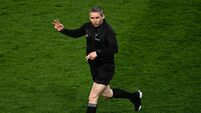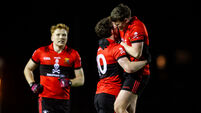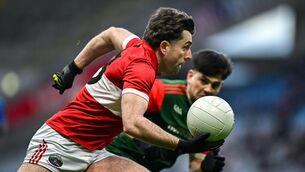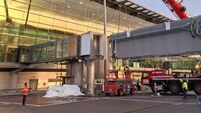Duffy blasts club game critics
While acknowledging the association has a disciplinary problem, the GAA director general slammed the sensationalism attributed to theviolent scenes between Derrytresk and Dromid Pearses by a number of non-GAA columnists.
“One need only examine the excessive coverage of the incidents at the All-Ireland junior club semi-final in Portlaoise. These were disagreeable incidents, and no-one in authority in the GAA will seek to minimise what occurred. But the gap between what actually occurred and the presentation of what occurred was conspicuous. The incident became an unmissable opportunity in certain quarters to target the GAA and toindulge in the crudest forms of stereotyping of supporters of Gaelic games. That said, one should not dwell at length on the disparaging caricatures emanating from the minds of the envious, the very coarseness of which is surely a sign of how much the popularity of Gaelic games enrages them.”














